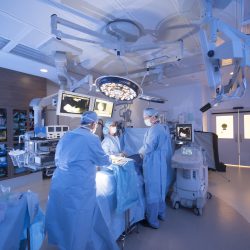Advances in Therapies for Mother and Baby
Highlights from the 2017 Fetal to Neonatal Care Conference: Advances in Therapies for Mother and Baby
The first Fetal to Neonatal Care conference, hosted by Midwest Fetal Care Center, brought together experts in fetal and perinatal medicine to promote knowledge of advanced interventions and therapies. Read more for a few highlights.
